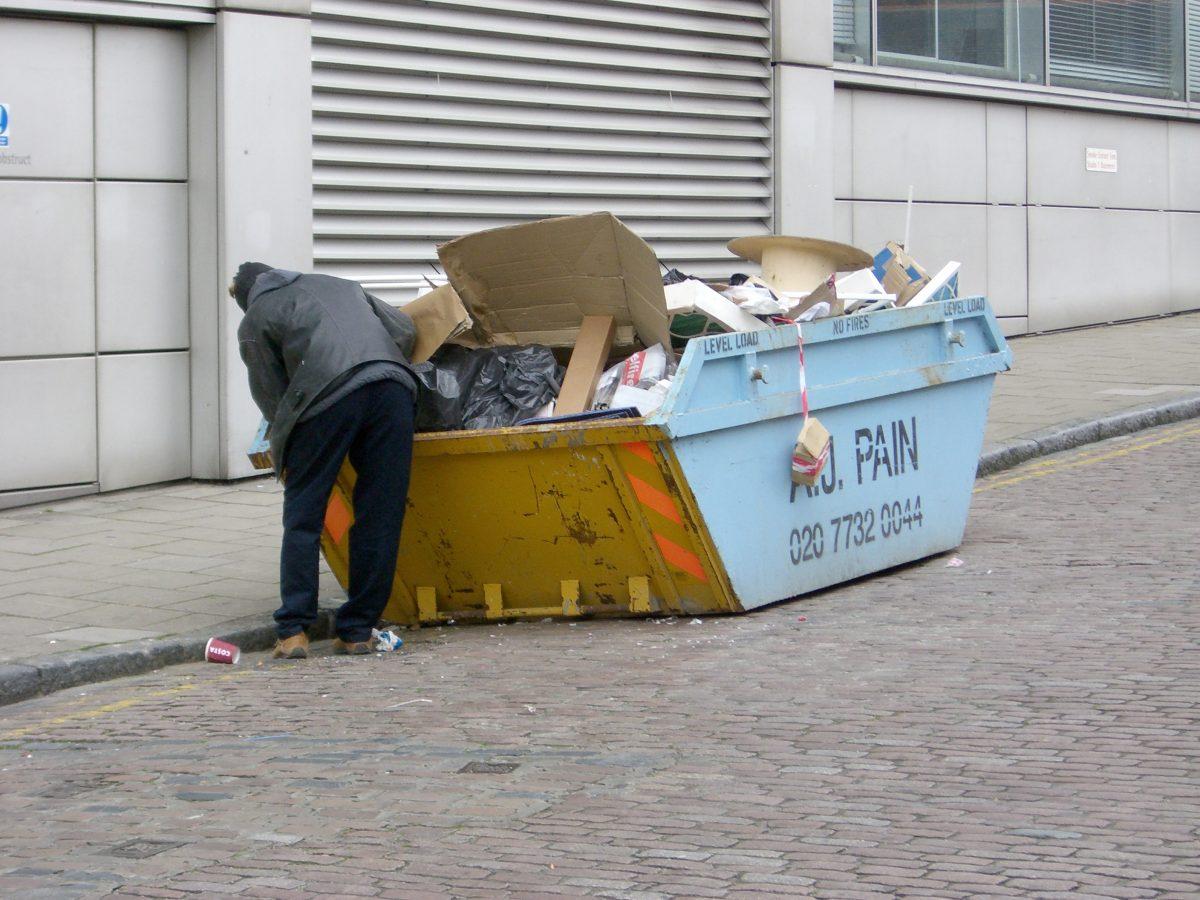Dumpster diving is an illegal and stigmatized practice in North Carolina, but Bridget Lassiter, a crop science research assistant at N.C. State, sifts through trash to save money.
Wednesday, Lassiter lectured a group of about 30 people about the importance of dumpster diving. She said people, and especially retailers, throw out a lot of things that could either be recycled or given to those who could really use it. Many of the students attending were N.C. State Stewards, a group that advocates for a more sustainable future.
Lassiter said that while dumpster diving, she has found large amounts of food, clothing, hair gel, holiday greeting cards and various other items that were still in good condition.
“[Throwing away useful items] is just irresponsible,” Lassiter said. “When one in three children in Wake County are going hungry…that makes me mad.”
Lassiter said that some stores are really “bad offenders” when it comes to throwing out clothing and products that could be given to those in need. She said that among the worst stores are Old Navy, Bed Bath and Beyond, Food Lion and Home Depot.
“Some of our retail stores are irresponsible,” Lassiter said.
According to Lassiter, many retail stores actually ruin clothing before throwing it away, so that it cannot be used by those who did not purchase it. For example, she said she found North Face jackets slashed in the garbage of Dick’s Sporting Goods.
“This is a problem that’s bigger than me, but it’s a problem that’s local,” Lassiter said.
Jason Endries, a junior in meteorology, said he was surprised that retailers slashed clothes.
“I might actually email her and go [dumpster diving] with her sometime,” Endries said.
During her presentation, Lassiter showed pictures of items that she found in the trash. One picture showed items trashed with a note, stating that they were thrown out because they had dirt on them.
“It’s really interesting, I knew it was happening with food, but I didn’t know about other retailers,” said Ben Phillips, a senior in fashion and textile management.
Lassiter said she places part of the blame on the consumers and the high value that they place on new, expensive products.
“Think about the responsibility of being a consumer in a country where we have choices,” Lassiter said.
But Lassiter said she was inspired by others who were dumpster diving and promoting the process, such as Jeremy Seifert, who made a movie called Dive! about the subject.
“These companies are not going to change unless they get publically shamed,” Lassiter said.
Lassiter said Trader Joe’s completely changed the way that the company disposes of waste. Additionally, Harris Teeter donates its leftover food to the Inter-Faith Food Shuttle.
“Luckily, Harris Teeter is being responsible about the food they sell,” Lassiter said.
However, she said other grocery stores, such as Food Lion, throw out a substantial amount of food. She said that despite what the grocery store managers have said, it does not appear that the store donates much due to an abundance of food she found in its dumpster.
Lassiter said that she isn’t afraid to take food out of the dumpster, and that she has donated and eaten food taken from the dumpster, and she hasn’t gotten sick yet.
Due to opposition from businesses, there is some strategy to dumpster diving, as anyone can still get in trouble for doing trespassing on private property.
She said she tries to go to retail stores in the evening or on weekends to avoid employees when she’s going through the trash.
“I don’t like to be seen, I’m a shy dumpster diver,” Lassiter said. “I’ll give lectures to other people but I’m shy.”
Rebekah Dunstan, program coordinator for the sustainability office, said that she helped organize this lecture to get students excited about this problem. She said that she just went dumpster diving for the first time with Lassiter.
“It was really interesting, the dumpsters were extremely clean, Bath and Body Works has the best smelling dumpster I’ve ever been in,” Dunstan said. “But it was also really disheartening, because you see a lot of stuff. Why is this being thrown out?”
Lassiter did say it is important to be careful while dumpster diving, because of various hazards.
“People will climb into [trash] compactors, but people have also been killed because you never know when somebody’s going to hit the button,” Lassiter said.
At the end of the presentation, Lassiter asked everybody that attended what he or she thought about the presentation. Students used words such “infuriated,” “annoyed,” “inspired,” “surprised,” “not surprised,” and “I’m going dumpster diving this Sunday.”
N.C. State sustainability will be promoting recycling today in the Brickyard between 11 a.m. and 1:30 p.m.








